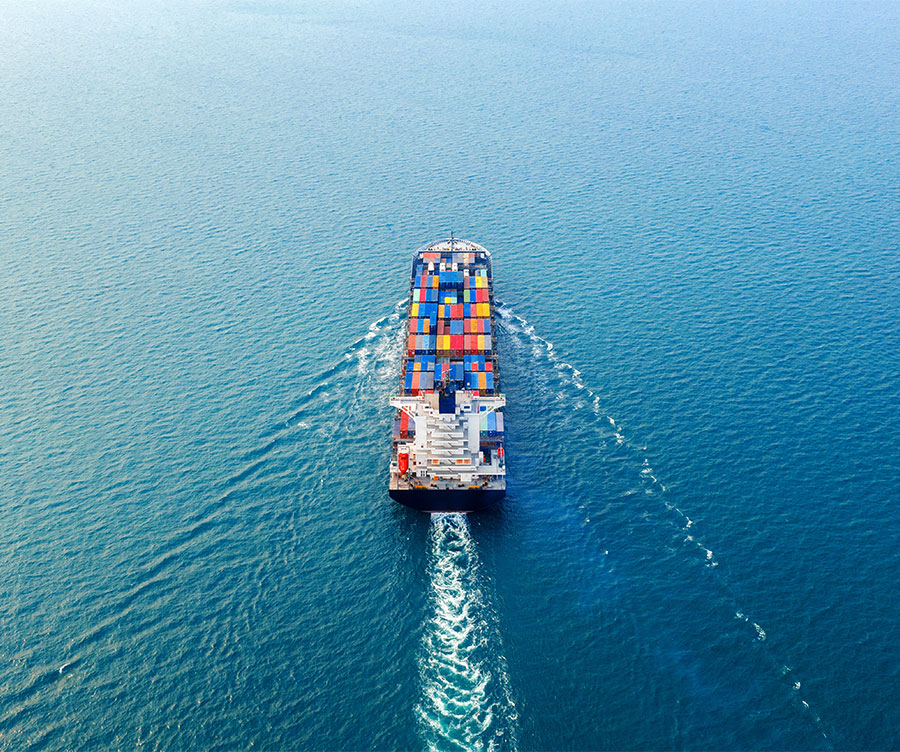Metals and mining-focused blockchain platform MineHub is widening its scope with a new release that covers container-based transactions and shipments.
Launched in 2019, the MineHub platform facilitates trade operations and document flows between metals and mining companies. It allows parties involved in selling, buying, delivering and paying for a cargo of minerals to collaborate securely in real-time, sharing electronic information rather than couriering or emailing paper documents that are subject to interception, fraud and cyber threats.
As its user base has now grown to include downstream producers and consumers of metals in major industrial categories like copper cathodes, the company is now expanding beyond bulk shipments of raw materials, such as iron ore and metal concentrates, to containerised trade – bringing together all of the information flows in trade transactions in one place.
“80% of the world’s goods are transported via oceans,” says Arnoud Star Busmann, CEO of MineHub. “Being able to support container-based transactions unlocks a much bigger market, as many of the world’s commodities and products are shipped in containers. It also demonstrates the flexibility of the MineHub platform as well as its speed to market, having developed this capability within two months and tested it live with several industry leaders.”
MineHub says that its system will allow users to achieve real-time visibility of the location of their container shipments and other data points like shipment status and estimated time of arrival, adding that this capability “transforms customer experience, frees up time in operations, increases supply chain resilience and enhances risk control for financiers and insurers”.
For the time being, the system will focus on containerised trade in the metals and mining industry, however Star Busmann tells GTR that there is “no limitation”.
“The platform can be used for any container-based shipment,” he says. “In fact, some mining companies have already indicated an interest in using MineHub for their upstream procurement of equipment, trucks, tyres and explosives, all of which are shipped by container.”
This latest development comes in the wake of a flurry of activity from MineHub, which has been building partnerships with players in adjacent areas in an attempt to achieve the hallowed end state of interoperable, end-to-end trade digitalisation. Last month, it joined forces with Japanese blockchain trade finance network TradeWaltz, carrying out a proof-of-concept transaction to demonstrate how users can access the two solution providers’ functions – including the sharing of mineral production and digital contracts and electronic trade documents such as letters of credit, bills of lading and purchase orders – in a single window.
This came a year after a partnership with Contour, another trade finance platform, which enables trades on MineHub to flow into the Contour network via API, where a digital letter of credit can then be created.
With its expansion, MineHub is now working to connect the many parties involved in containerised trade in a digitally integrated workflow, arguably bringing it into competition with consortia such as TradeLens, the Maersk and IBM-developed supply chain ecosystem that facilitates information exchange for more than 65% of containerised trade. Unlike TradeLens, though, MineHub does not offer a native electronic bill of lading (eBL) solution.
However, MineHub says that to supplement this new release it will soon support the open digital standard for eBLs developed and published by the Digital Container Shipping Association (DCSA), a nonprofit group backed by the largest container carriers.
“Open standards are a very important tool for facilitating trade digitalisation,” says Star Busmann. “Importantly, we don’t seek to replace other systems and platforms such as essDocs and Bolero, but we would like to connect them via standards.”
The company says it is also supporting the work of the Future International Trade (FIT) Alliance, which brings together Swift and the International Chamber of Commerce (ICC) with the DCSA, the International Federation of Freight Forwarders Associations and the Baltic and International Maritime Council with the aim of creating and agreeing upon definitive standards for the eBL. To this end, it has appointed Oswald Kuyler, former managing director of the ICC’s Digital Standards Initiative and director of strategy for fintech MonetaGo, to its advisory board.
“We want to support standardisation as much as possible with real-life solutions that are being used by companies in order to realise adoption, not just aim for it,” says Star Busmann. “Oswald’s role in driving standardisation and understanding the markets is very helpful in that mission.”







